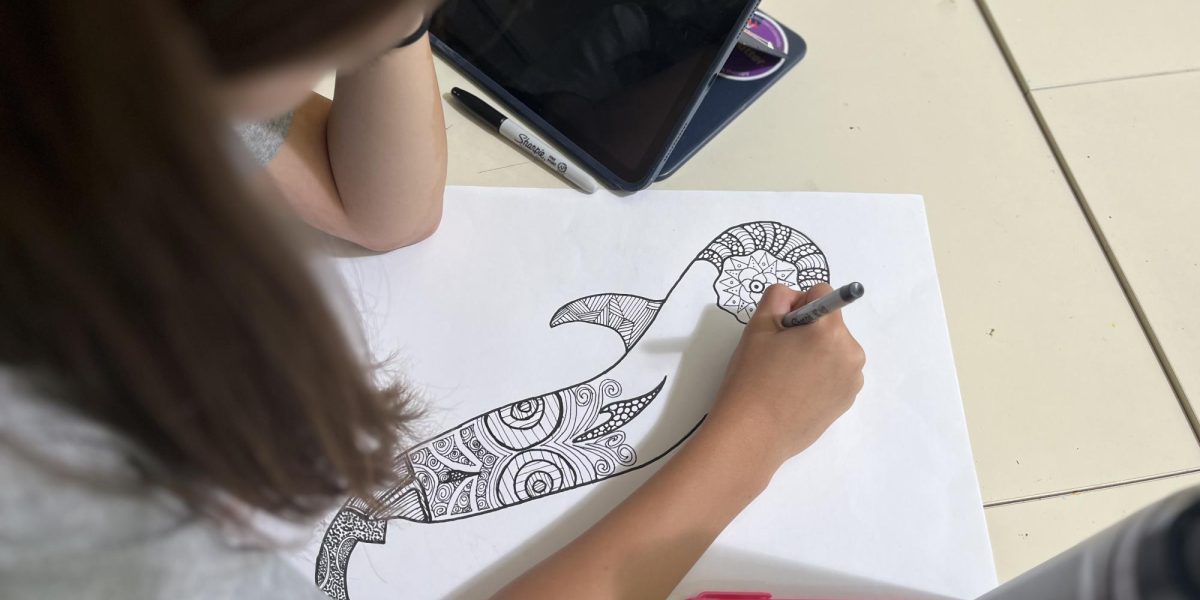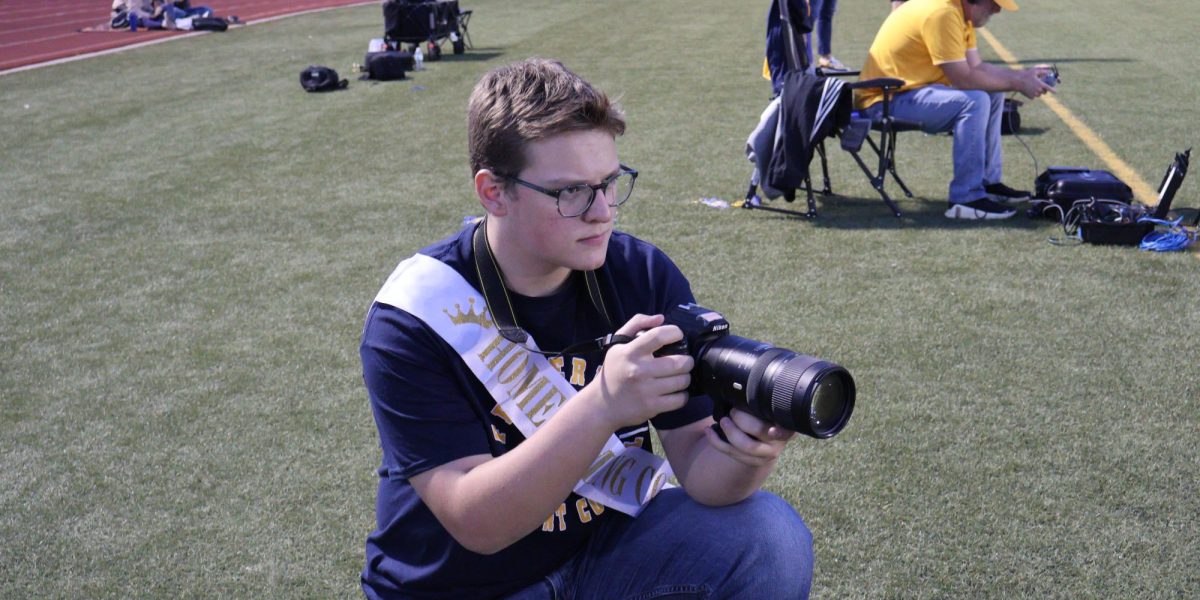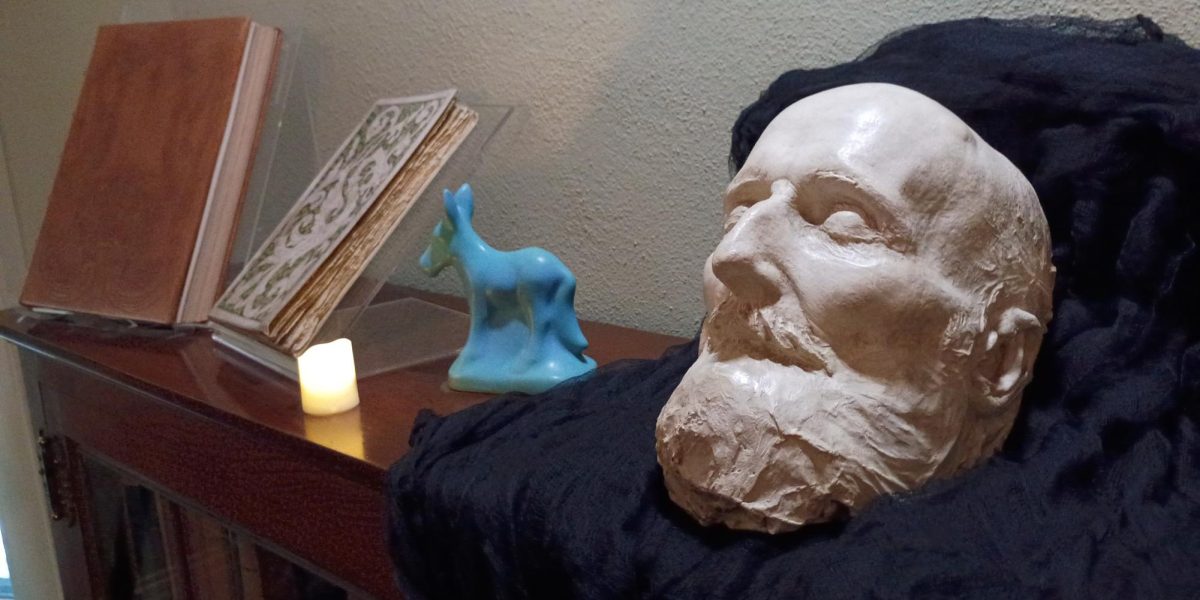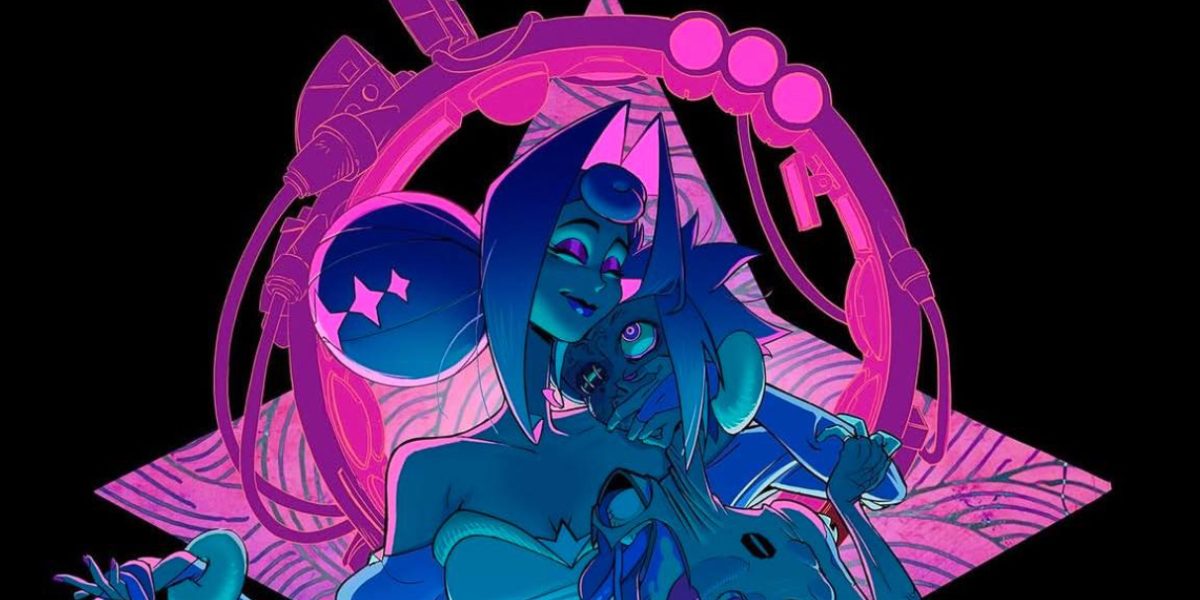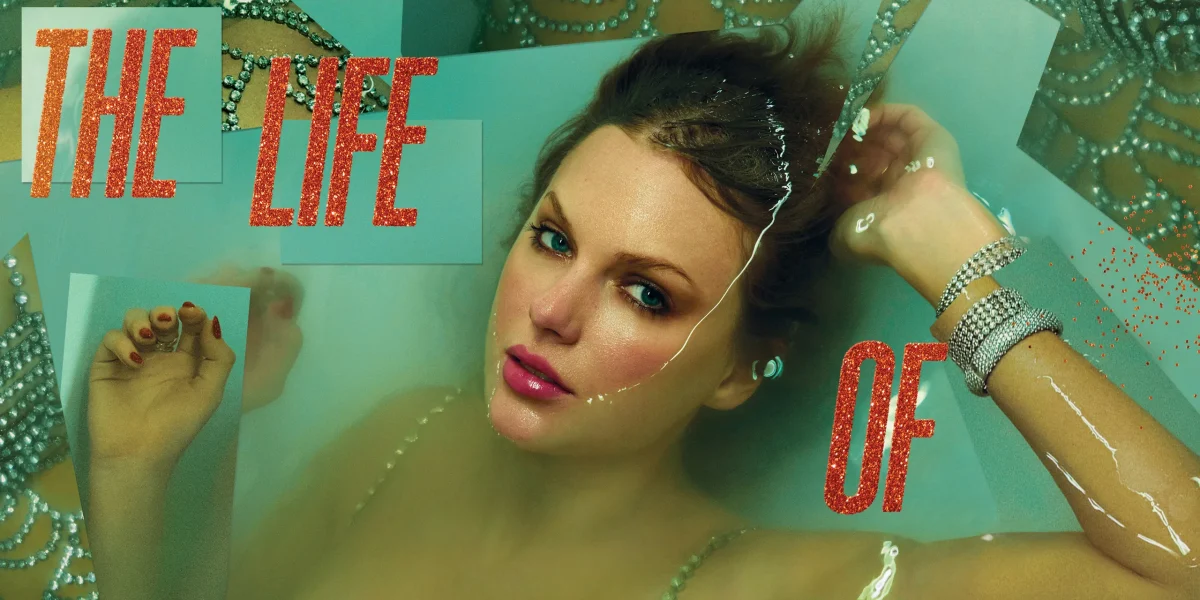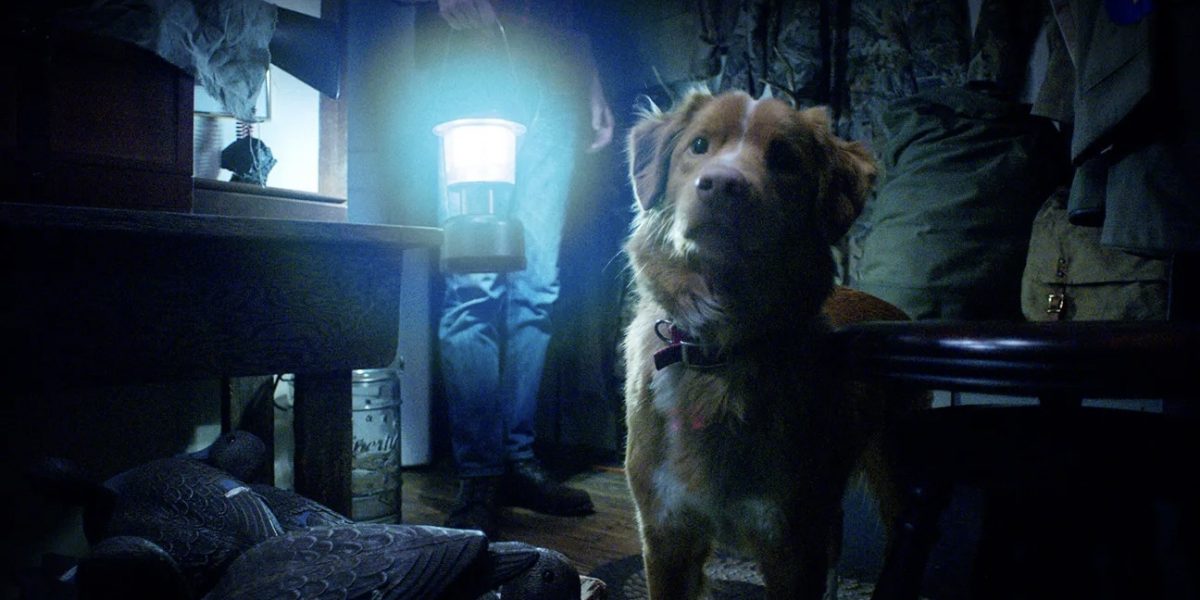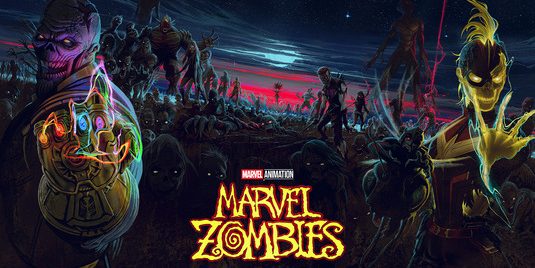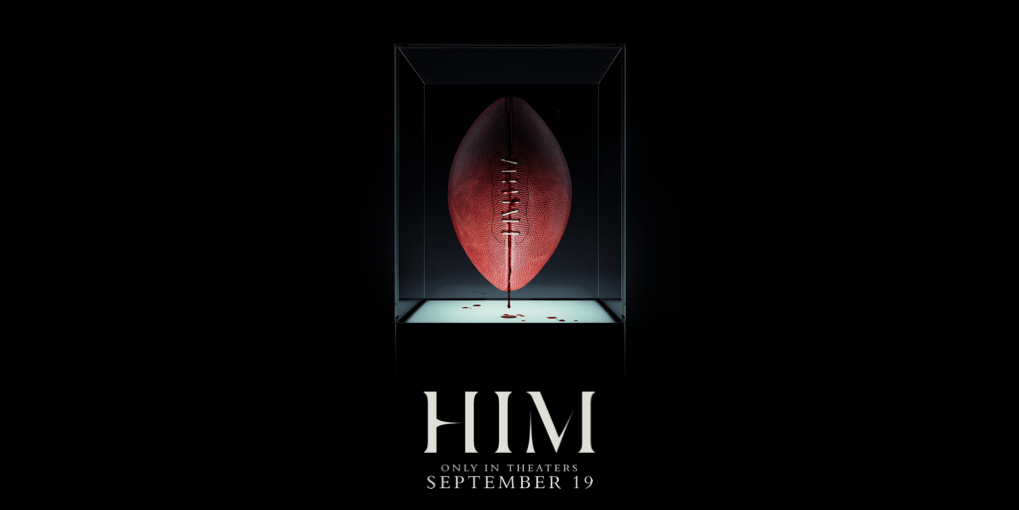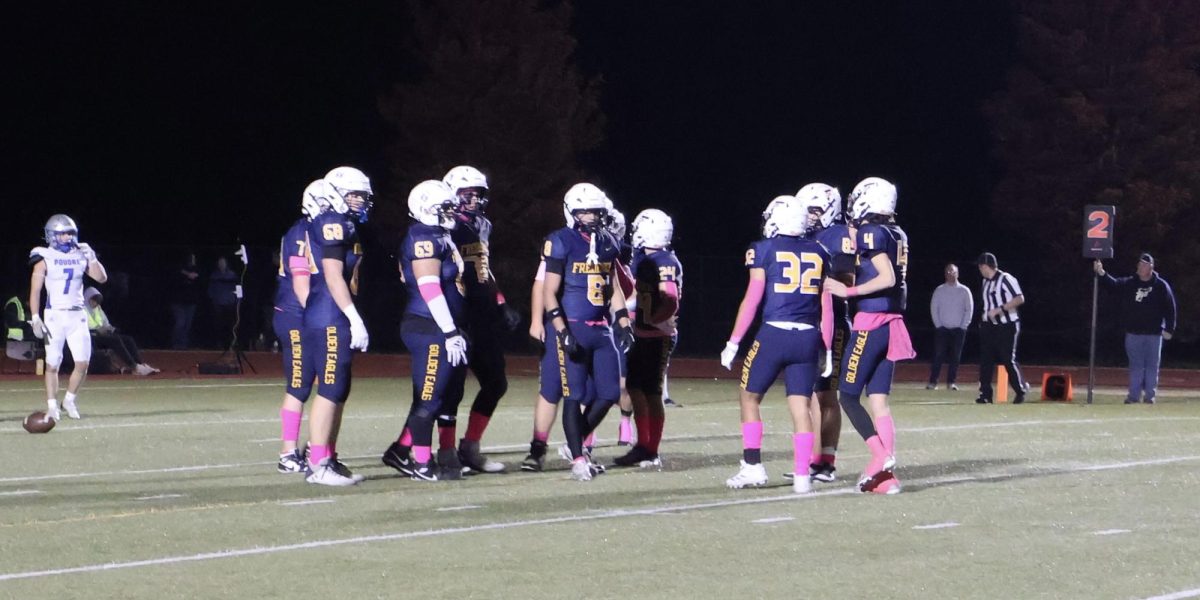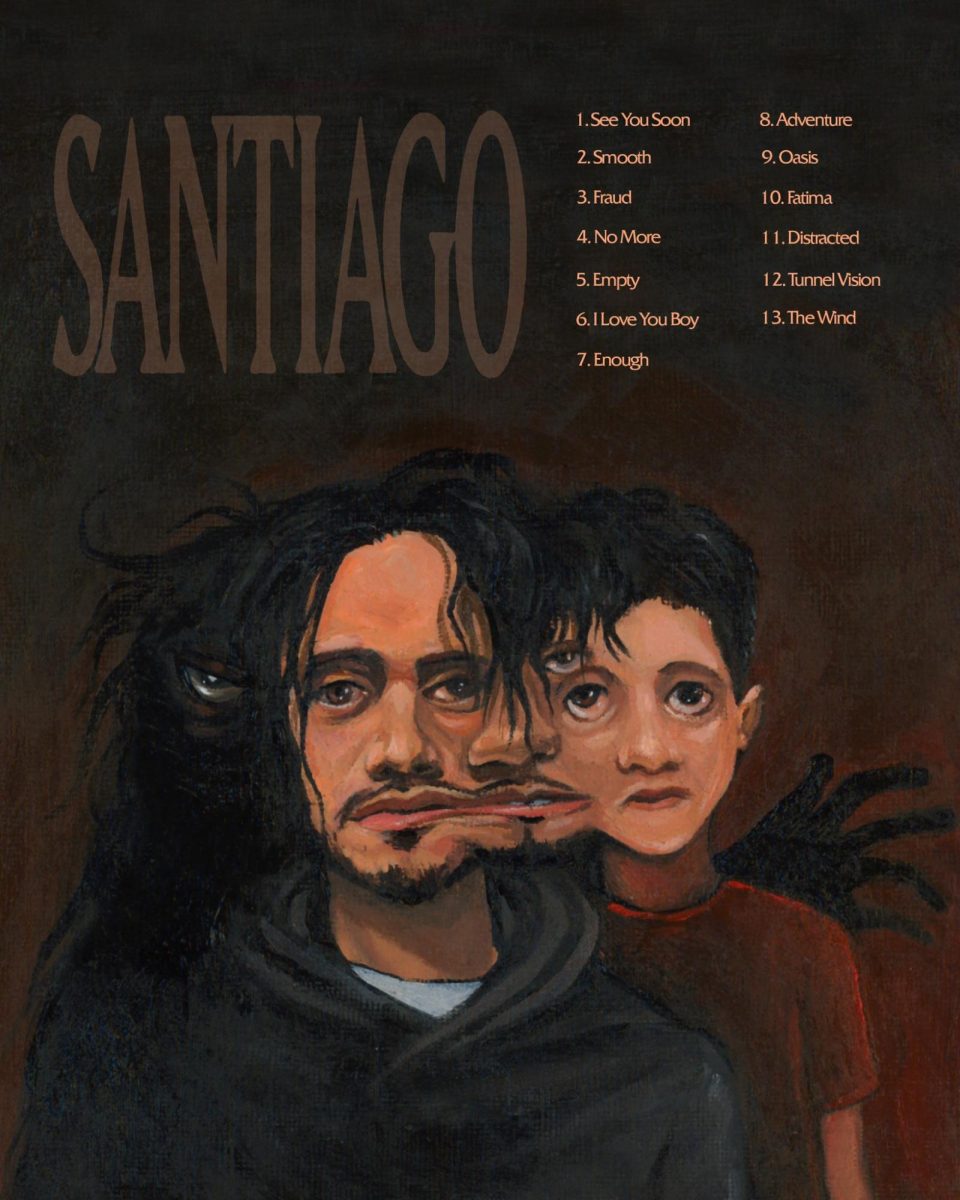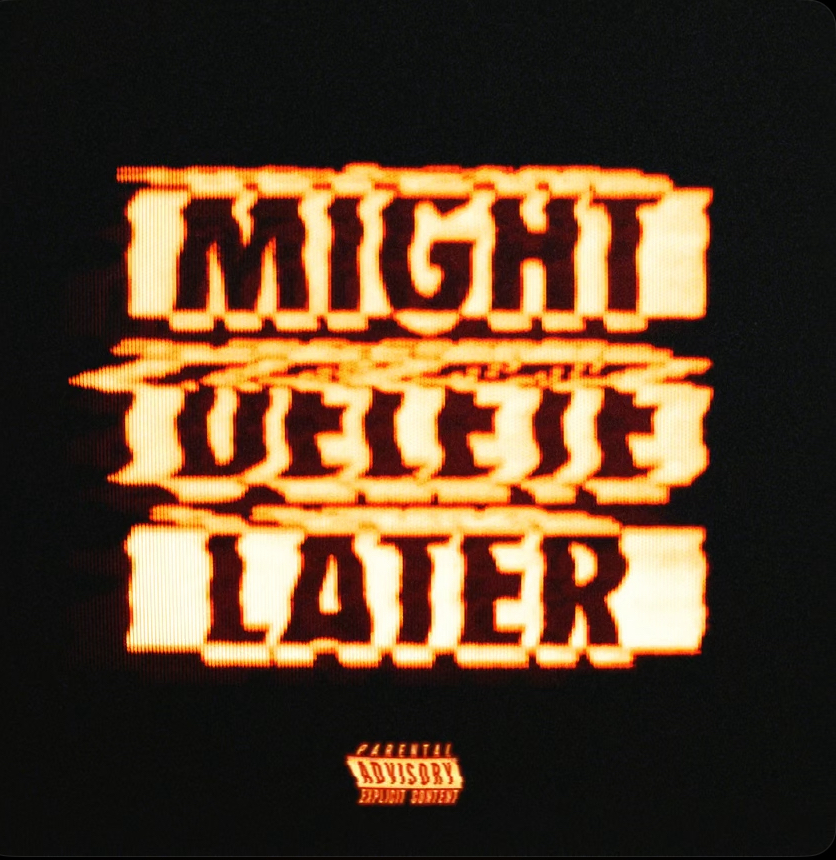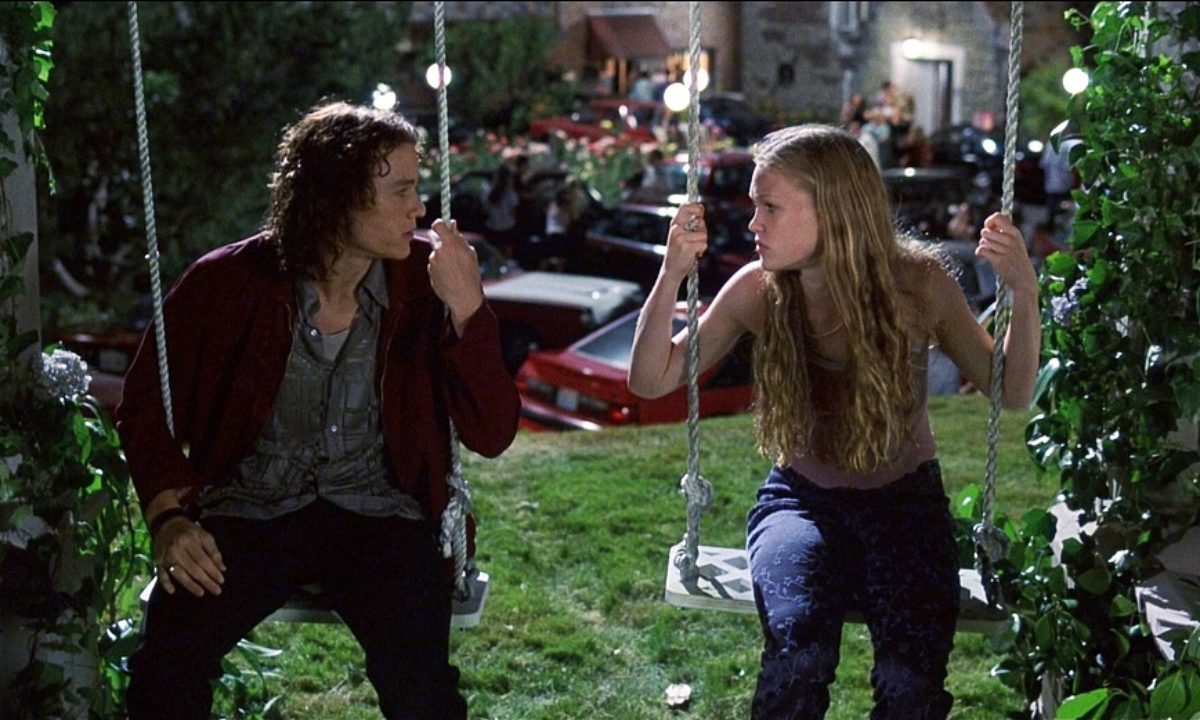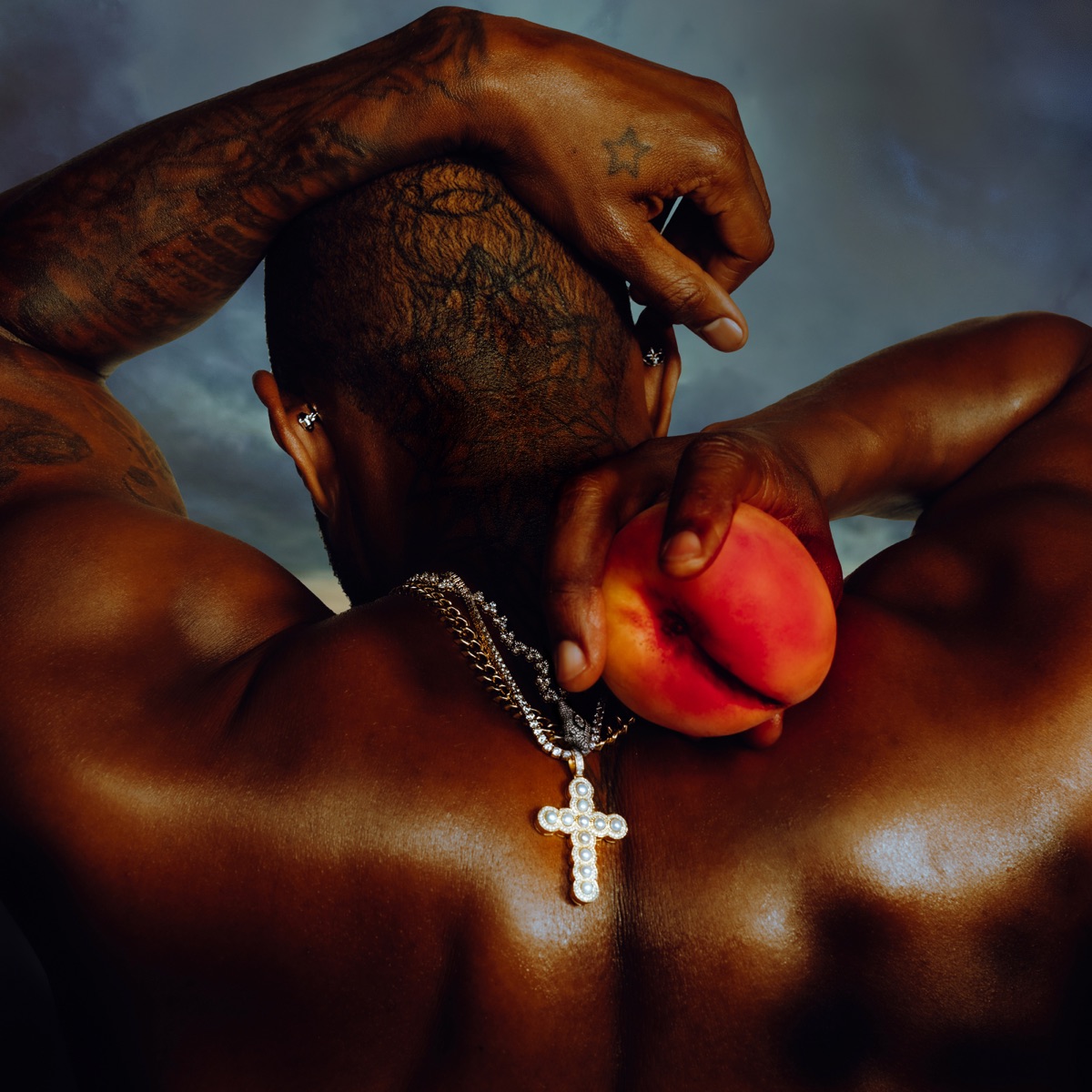A new era of Russ has approached the public eye. For those who are unfamiliar with Russ, he is a singer, hip-hop rapper, and songwriter, who has gained popularity and captured the hearts of fans around the world since the early 2010s with his relatable lyrics and unique music style. Some of his best-known songs include “3:15,” “Losin Control,” “Missin You Crazy,” and “The Flute Song.” His most recent album, Santiago was just published on August 18th, but what sets it apart from previous releases?
Well, for starters, the album cover represents his past mental, emotional, and physical health journey and how his journey wasn’t always the prettiest as it may have seemed, and he had to cope with doubt, anger, and shame. The back of the album cover presents his battle with himself, his inner child, and his shadow, as well as how he dealt with childhood traumas that have manifested in his adult life.
The album is supposed to help resonate with those who are going through obstacles of their own. He expressed that this album represents his quest for self-love as well as his effort to comprehend and deal with problems that have resurfaced throughout his life. This is the most vulnerable music he has ever made, and while most of his music has won audiences over with its relatable and sincere lyrics, he hopes that with these songs he can face his own feelings and give listeners the courage and strength to face their own.
The music itself is really good; his record has 13 tracks and lasts for 41 minutes straight. He wants the album to leave listeners with the knowledge that they are more than capable of evolving into a better version of themselves. As such, each song on the album stands on its own and conveys a different, significant message. The songs “Fraud,” “I Love You Boy,” and “The Wind” in particular have a significant influence and created a huge impact on the overall mood and album itself.

With “Fraud,” Russ confronts himself with lyrics like “Who am I if I’m not perfect? “Who am I if I have doubts? and “Who am I if they don’t accept me?” Russ’ intentions toward pleasing others started when he was very young, and as his relationship with the art of music deepened, he found himself consumed in the pursuit of perfection and unattainable happiness, which reflects how he pressures himself into feeling that he isn’t enough. “I Love You Boy,” refers to the time when Russ was growing up in an “environment that was hostile, it got wild” and it connects with how he is today, “There’s a wound in your heart, survival mode, you’re traumatized.” While the album was hard to write altogether, this was the hardest song Russ wrote, he said in an interview, as it was extremely confronting, and though it was uncomfortable, he created the love, empathy, forgiveness, and patience he desperately needs for himself.
The last and final song of the album, “The Wind,” was the song to set free. With this song, he wrote, “I had my doubts; I’m ashamed to admit,” “But I realized now, I am the one.” “My faith was tested, but I invested,” as he had doubts in himself and then expanded the lyrics after having self-doubts to “Watch me elevate beyond the point you said was my highest.” He did this to show he had to put himself in order to just discover and realize his full lifetime potential. The song’s message is that, when sung repeatedly, “The Wind” is pushing him (or anyone) to a greater destination in life. The song finishes with the lyrics “It was you all along,” and “You had it the whole time,” showing that you are the answer and key to life.
When looking for solutions to pleasure and the beauty of life itself, Santiago stands for the terrible and harsh truth of the present moment. With this album, Russ tells a powerful and inspiring story and allows listeners to connect with those around them and overcome obstacles, in addition to understanding what he has been through.
All in all, this is an important story and an incredible album that everyone should listen to. When discussing this album, Russ frequently quotes Paulo Coelho’s adage that “one man’s journey is every man’s journey.”






